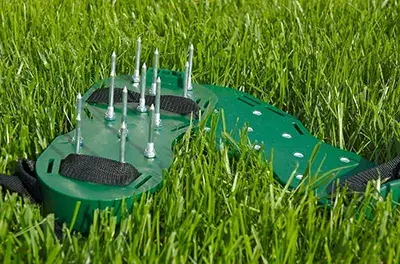Winter comes to an end and the spring season draws near. While many of us anxiously await the warmer weather and sunnier days, spring comes with its own bag of headaches…especially those annoying allergies! In Central Texas, we all know about the struggles of allergies and as a lawn care provider, we know grass can be a major source of some or all of these symptoms.
If you are experiencing itchy, watery eyes, sore throats, coughing, etc., you may be allergic to grass pollen. Grasses tend to start growing in the early spring. Towards the end spring and going into the early summer, they release pollen into the air. Once the pollen becomes airborne, the wind can carry it for miles. Since grass pollen is microscopic, you may not see pollen in the air, but if you’re allergic, your body may react even to small amounts.
There are hundreds of types of grasses. Types that often trigger allergies include:
- Bermuda grass
- Johnson grass
- Kentucky bluegrass
- Orchard grass
- Redtop grass
- Rye grass
- Sweet vernal grass
- Timothy grass
You may be allergic to only one type of grass or to many, some of which cross-react allergically. Factors that can make the grass pollen reaction worse:
- Dry, windy days. The wind carries pollen in the air, especially when it’s dry and sunny. When it’s cold or damp, the moisture and humidity in the air often make pollen counts lower.
- Un-mowed grass. Most types of grass release pollen only when they grow tall. The pollen comes from a feathery flower that grows at the top. If you keep your lawn mowed and regularly maintained, the grass is less likely to release pollen.
However, some grasses, like Bermuda grass, can still release pollen even when kept short. Here are some suggestions and advice to get you through the onset of allergy season.
- It is always better to visit your doctor or an allergy specialist to see what exactly you are allergic to. Once you know then you can try different over-the-counter medicine (OTC) to see what works best for you. Start with a daily dosage and monitor for the next weeks to see what works best for you. There are also all natural daily supplements you can take to combat allergies.
- There are (OTC) nasal sprays and eye drops that are really helpful with the itchiness and stuffiness. Use these in moderation as your body may rely on them if used too often.
It is very hard to avoid allergens once they are airborne and you will be in contact no matter while outdoors. You can definitely prevent or avoid having the allergens bother you indoors.
- Make sure to change your AC filters once every 30 days or even better install AC systems with allergen blocking filters. We know it’s hard to resist opening your windows on those 70º spring days but keep your windows close to prevent the pollen from finding its way into your home.
- Taking a shower before bed and washing your sheets and clothes often will remove the allergens that may have stuck to your body while outdoors.
- Once you find out exactly what are you allergic too, you can make changes in your lawn or backyard by changing the plants or sod that you might be more sensitive too.
Emerald Lawns is available if you need help with any changes a that will improve the health. Say no to bad allergies and try to prevent them by calling Emerald Lawns.




